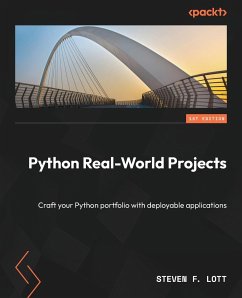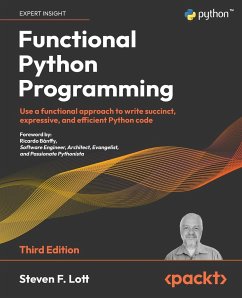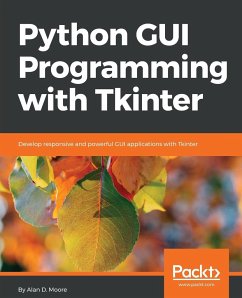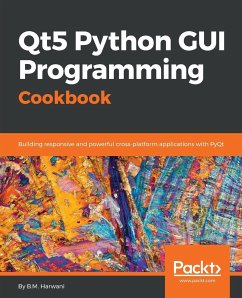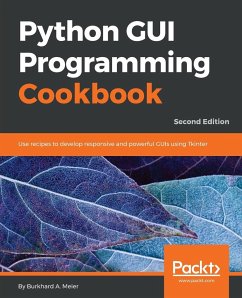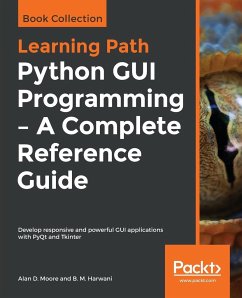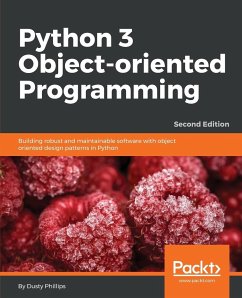
Functional Python Programming
Create succint and expressive implementations with functional programming in Python
Versandkostenfrei!
Versandfertig in 1-2 Wochen
52,99 €
inkl. MwSt.

PAYBACK Punkte
26 °P sammeln!
Create succinct and expressive implementations with functional programming in Python Key Features:Implement common functional programming design patterns and techniques in Python Learn how to choose between imperative and functional approaches based on expressiveness, clarity, and performance Apply functional Python to common Exploratory Data Analysis (EDA) programming problems Book Description: Python is an easy-to-learn and extensible programming language that offers a number of functional programming features. It's ideally suited to a number of applications in the broad space of data scienc...
Create succinct and expressive implementations with functional programming in Python Key Features:Implement common functional programming design patterns and techniques in Python Learn how to choose between imperative and functional approaches based on expressiveness, clarity, and performance Apply functional Python to common Exploratory Data Analysis (EDA) programming problems Book Description: Python is an easy-to-learn and extensible programming language that offers a number of functional programming features. It's ideally suited to a number of applications in the broad space of data science. This practical guide demonstrates the Python implementation of a number of functional programming techniques and design patterns. Starting with a general overview of functional programming concepts, you will explore common functional features such as first-class and higher-order functions, pure functions and more, and how these are accomplished in Python. Additionally, you will cover how common functional optimizations can be handled in Python. You'll also explore data preparation techniques and data exploration in depth. Moving on, you will learn how the Python standard library fits the functional programming model. The book concludes with a look at the PyMonad project and some larger examples. By the end of this book, you will be able to understand what functional programming is all about, its impact on the programming workflow, why it's important, and how to implement it in Python. What You Will Learn:Use Python's generator functions and generator expressions to work with collections in a non-strict (or lazy) manner Utilize Python library modules including itertools, functools, multiprocessing, and concurrent.futures for efficient functional programs Use Python strings using object-oriented suffix notation and prefix notation Avoid stateful classes with families of tuples Design and implement decorators to create composite functions Use functions like max(), min(), map(), filter(), and sorted() Write higher-order functions Who this book is for:





